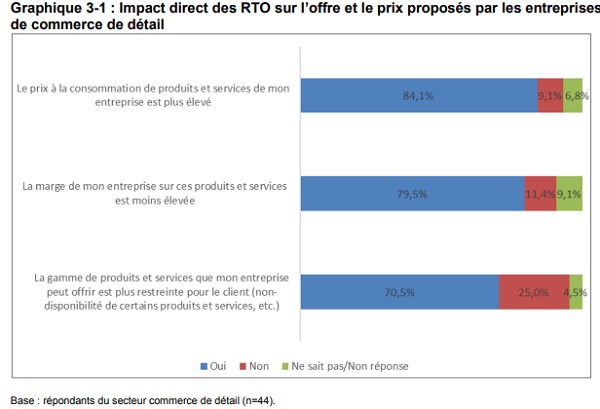 Credit: Observatory on Pricing
Credit: Observatory on Pricing
Territorial supply restrictions have been found to have a negative impact on the competitiveness of Luxembourg companies in terms of prices, margins and the proposed range of products.
A survey conducted by the Benelux General Secretariat has highlighted the problems faced by Luxembourg companies because of their limited access to the supply networks of their choice within the EU's internal market. Many producers and wholesalers force companies to source from subsidiaries or platforms determined by their distribution network system. 68 Luxembourg companies, including 65 SMEs, participated in the survey in order to analyse the extent of the consequences for companies unable to source freely from the most economically favourable suppliers.
Entitled "Territorial Supply Restrictions in Benelux: Data Analysis of the Luxembourg Survey", the Observatory on Pricing presented a summary of the nature and extent of the phenomenon in the Grand Duchy. It showed that such territorial restrictions affect companies of all sizes in the retail trade as well as outside this sector, especially in the craft industry. According to the survey, the negative consequences are particularly noticeable in terms of prices (according to 86.8% of the companies surveyed), company margins (82.4%) and the range of products and services offered (64.7%), but also on delivery times (54.4%), characteristics (52.9%) and the quality (50%) of products.
Luxembourg has for several years been conducting discussions with the European authorities on the implications of territorial restrictions on supply on the Luxembourg economy and studies by the Benelux General Secretariat and the Price Formation Observatory support the steps taken in favor of overcoming the difficulties of supply faced by a multitude of Grand Ducal companies in the internal market.
As a result, the European Commission stated that it would be taking a closer interest in this problem at today's high-level conference on the challenges for the retail trade.








